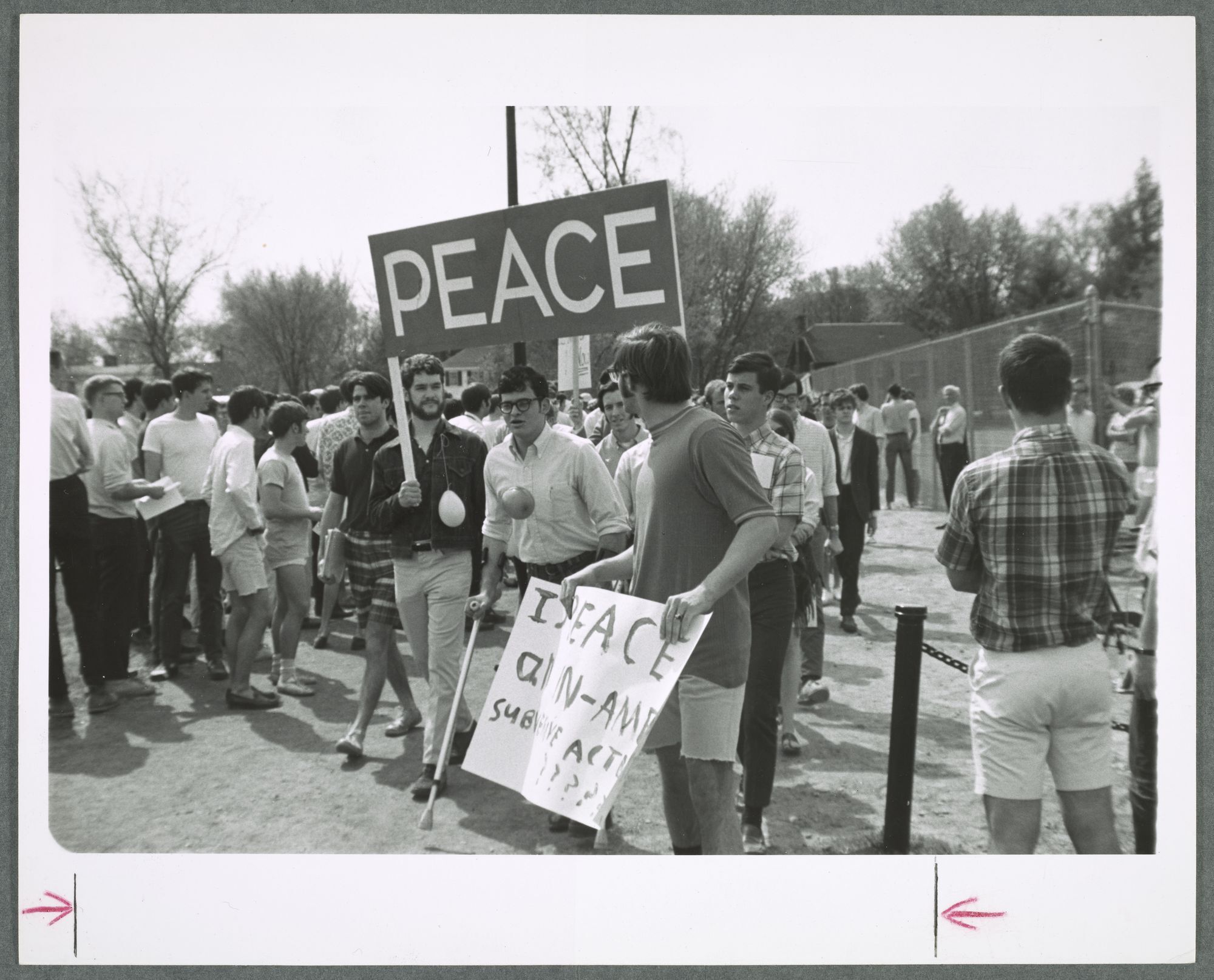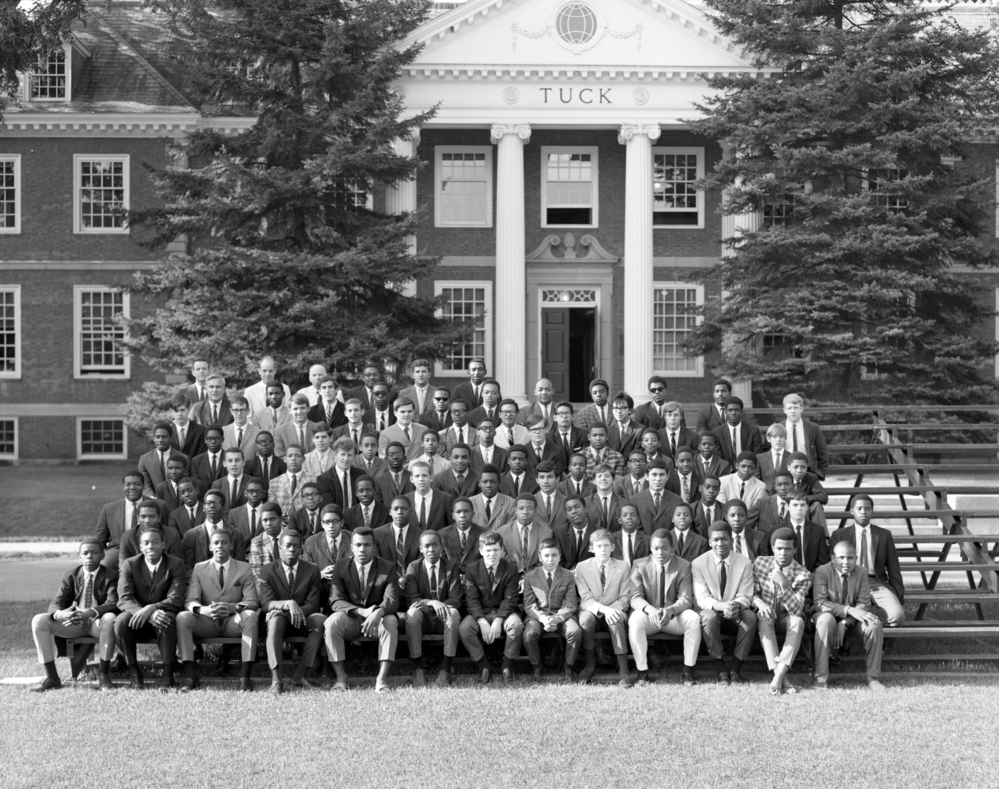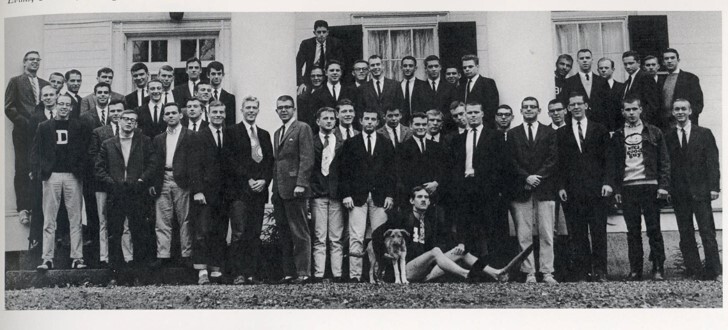The 1960's at Dartmouth
At the beginning of the 1960s, there was optimism that the United States would seamlessly continue the success and long economic growth that they had seen since the end of World War II. The space race had heated up, the Civil Rights Movement had gained massive popularity, and the United States military was engaged and focused on the Cold War with the Soviet Union. America was the clear "leader of the free world." The notion of a regional war the US could not easily win did not register in the American psyche.
This all changed when the United States' entered the Vietnam War in 1964. Large divides emerged between the older "establishment" and the younger generation, giving birth to new forms of countercultural expression and thought that would eventually transform the fabric of American culture.
Dartmouth During the 1960s
Politically, Dartmouth in the 1960s was generally "very conservative" compared to most college campuses. As Bruce Pacht '67 put it, "my perception was that Dartmouth was about four years behind the rest of the country." Each class admitted roughly 800 students, all of which were subjected to what now would be considered hazing. One of the more notable examples was freshman beanies.
Although this would change dramatically over the coming decades, Dartmouth was over 90% white, and only a handful of black, other minority, and economically disadvantaged students attended.
The student body was all-male, as the college would not admit its first female students until 1971. Thus, "anyone who was at any college in the mid-’60s had to grapple with getting drafted and sent to Vietnam" (Sjogren).
In the early 1960s, the most prominent political issue on campus was the Civil Rights movement. In 1964, the Vietnam war eclipsed it as the most relevant and pressing topic.
Civil Rights Movement
On August. 28, 1963, Martin Luther King Jr. delivered his famous "I Have a Dream" speech, and less than a year later, Congress passed the Civil Rights Act of 1964 that legally ended the segregation that had been institutionalized for decades by Jim Crow laws. Though Dartmouth President John Sloan Dickey told the Dean of Admissions that he "wished the freshman class to be selected without any consideration whatsoever of race or religion," Dartmouth was still overwhelmingly white. The class of 1967 only had four Black students.
Though the campus was still relatively conservative, the early 1960s saw the Civil Rights Movement come to Dartmouth. The Afro-American Society, which was founded "as a means to improve the academic excellence of black students on campus," brought Malcom X and Martin Luther King Jr. to speak on campus.
ABC Program
The 60's also saw the formation of the ABC (A Better Chance program), a program where Dartmouth provided students from underprivileged backgrounds with intensive summer programs to help prepare them for private prepatory schools and eventually college. Graduates of the ABC program comprised much of the college's black population in the 60's. By 1970, 17 black students matriculated compared to the 3 that had matriculated in 1967.
However, the ABC Program and further integration of Dartmouth was not welcomed by all in the community. Larner recalled how one of his friends renamed it ABCD, which stood for "a boon comes to Dartmouth." Even his own fraternity encountered difficulties while trying to integrate. After befriending a Black student, Larner introduced him to his fellow fraternity brothers who also liked him. However, a visiting member of a California chapter of Phi Kappa Psi filed a 'trans-chapter blackball' against Joseph Wright that spring, as it had taken only one no-vote against a pledge from a member of the national fraternity to blackball, or deny, a pledge admission into the fraternity.
Thankfully, Larner's story has a happy ending. This event would eventually become the reason why Phi Kappa Psi would split from national and were then able to admit Wright. Phi Kappa Psi a few years later would rename themselves "Panarchy" before eventually becoming the first Co-Ed fraternity when Dartmouth admitted its first female students in 1971.


